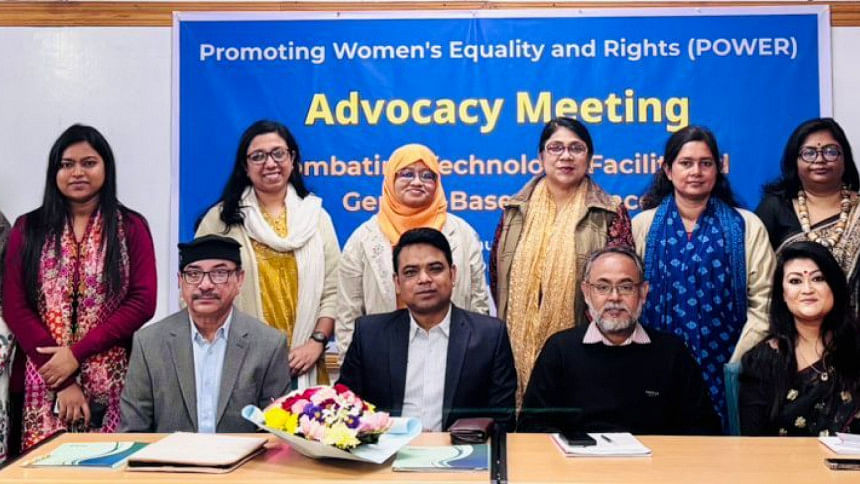Workshop stresses need to combat technology-facilitated gender-based violence

The widespread use of the internet and smartphones has brought significant progress in women's education and employment opportunities, but it has also led to a surge in online sexual harassment and violence, speakers said at a workshop in the capital today.
The event, titled "Combating Technology-Facilitated Gender-Based Violence," was organised by Voices for Interactive Choice and Empowerment (VOICE) under the "Promoting Women's Equality and Rights" (POWER) project. Journalists, civil society representatives, human rights activists, academicians, and legal aid providers participated in the workshop.
Speakers highlighted the need for awareness campaigns, workshops, and public education to address the growing threat of online violence against women. They called for prioritising victims' voices and ensuring easy access to support resources.
Mohaiminul Islam, additional superintendent of police, Cyber Investigation and Operation, CID, noted the complexity of investigating cybercrimes, including confiscating devices, forensic analysis, and liaising with social media platforms. "Many cases remain unreported, and what we handle is just the tip of the iceberg," he said.
Supreme Court Advocate Shah Navila Kashphi remarked that victims often settle with perpetrators, withdrawing cases midway, which hinders justice despite lawyers' efforts.
Ahmed Mahmud Swapan, executive director of VOICE, stressed the need for women to gain digital security skills, including safeguarding personal information and recognising online threats. He also underscored the importance of creating platforms for women to share experiences and foster solidarity.
VOICE Deputy Director Musharrat Mahera pointed out that patriarchal mindsets and a lack of digital literacy allow cybercrimes to go unchecked.
The Police Cyber Support for Women programme has assisted over 60,800 women since its launch in 2020. Yet, many victims remain hesitant to report incidents or seek help, fearing stigma or lack of awareness.
Other speakers included Trishia Nashtaran, founder of the Meye Network, Sharaban Tahura of Nijera Kori, and indigenous rights activist Dalia Chakma.

 For all latest news, follow The Daily Star's Google News channel.
For all latest news, follow The Daily Star's Google News channel. 



Comments